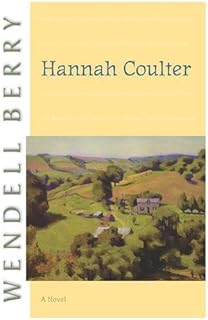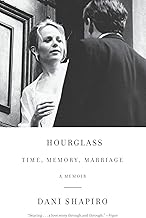spring reads {march, april, may}
once again, playing catch-up with what's been on my bookshelf!

1) Just Mercy: A Story of Justice and Redemption, by Bryan Stevenson. since i read this book, Stevenson's story has been turned into an award-winning movie. a gripping account of a young lawyer's career spent pursuing justice for death-row inmates who were either wrongly accused or unjustly sentenced. it's difficult to read because it forces you to confront the inequities of our justice system -- and that's precisely why it's so important. 5/5.
“Proximity has taught me some basic and humbling truths, including this vital lesson: Each of us is more than the worst thing we’ve ever done. My work with the poor and the incarcerated has persuaded me that the opposite of poverty is not wealth; the opposite of poverty is justice. Finally, I’ve come to believe that the true measure of our commitment to justice, the character of our society, our commitment to the rule of law, fairness, and equality cannot be measured by how we treat the rich, the powerful, the privileged, and the respected among us. The true measure of our character is how we treat the poor, the disfavored, the accused, the incarcerated, and the condemned.”

2) So You Want to Talk About Race, by Ijeoma Oluo. since reading this book in February, i've read other books by people of color who have a slightly different perspective, but i still think it's a worthwhile read especially for anyone who does not identify as a person of color. Oluo hammers home the point that the answer to our racial divide doesn't come from white people refusing to see color, but rather from each of us actually listening to each other's perspectives and acknowledging that a black or Latinx or Asian person often has a different experience of the world than a white person.
“Disadvantaged white people are not erased by discussions of disadvantages facing people of color, just as brain cancer is not erased by talking about breast cancer. They are two different issues with two different treatments, and they require two different conversations.”

3) Small Fry: A Memoir, by Lisa Brennan-Jobs. a fascinating memoir written by the daughter of Steve Jobs. her father looms large in her life, even during the many years of his absence (and possibly more so because of that). she describes the sad dance between his reclusive, socially awkward personality and her desire to be a focal point of his life. my favourite thing about of the book is her knack for recreating vividly specific scenes from childhood. 5/5.

4) The Good Neighbor: The Life and Work of Fred Rogers, by Maxwell King. a thoroughly researched, somewhat slow-paced narrative of the life of Mister Rogers. i especially enjoyed learning about the Rogerses life in Pittsburgh, as well as gaining a more nuanced understanding of the man behind Mister Rogers. this is not to say that Mister Rogers was an act, but rather that Fred worked very hard at keeping his mind, spirit, and body healthy. 5/5.
“It’s easy to convince people that children need to learn the alphabet and numbers. … How do we help people to realize that what matters even more than the superimposition of adult symbols is how a person’s inner life finally puts together the alphabet and numbers of his outer life? What really matters is whether he uses the alphabet for the declaration of war or the description of a sunrise -- his numbers for the final count at Buchenwald or the specifics of a brand-new bridge.”

5) Conviction, by Denise Mina. an explosively plot-driven book that was an absolute delight to read. as the book unfolds, it becomes clear that the main character has hidden her true identity in order to create a textbook-perfect life with her husband and children. throughout the twists and turns, you keep changing your mind about who the good guys and bad guys actually are. 5/5.

6) The Testaments, by Margaret Atwood. the riveting sequel to The Handmaid's Tale. Atwood is the master of creating a fantasy world that is still plausibly built from the framework of Biblical references and North American geography. the sequel's plot is a bit more gimmicky than the original, but i appreciated Atwood's use of multiple narrators to describe different generations' experience of Gilead. 5/5.

7) Hannah Coulter, by Wendell Berry. this is one of those books that is frequently lauded as a must-read in literary Catholic circles, so finally i decided to read it for myself. and oh, is it a balm for the soul. the main character recounts her life growing up in rural America. as you might imagine, there's not much excitement, per se; the drama is in the people and in the decisions of every day life in a farming community. 5/5.
“The living can't quit living because the world has turned terrible and people they love and need are killed. They can't because they don't. The light that shines into darkness and never goes out calls them on into life. It calls them back again into the great room. It calls them into their bodies and into the world, into whatever the world will require. It calls them into work and pleasure, goodness and beauty, and the company of other loved ones.”

8) Tremendous Trifles, by G. K. Chesterton. a collection of vignettes, some more fanciful than others, but all featuring Chesterton's flair for the whimsical. 5/5.
“Our civilization has decided, and very justly decided, that determining the guilt or innocence of men is a thing too important to be trusted to trained men. It wishes for light upon that awful matter, it asks men who know no more law than I know, but who can feel the thing that I felt in that jury box. When it wants a library catalogued, or the solar system discovered, or any trifle of that kind, it uses up its specialists. But when it wishes anything done which is really serious, it collects twelve of the ordinary men standing round. The same thing was done, if I remember right, by the Founder of Christianity.”

9) Catch and Kill: Lies, Spies, and a Conspiracy to Protect Predators, by Ronan Farrow. the tale of Farrow's dogged mission to research and expose Harvey Weinstein's pattern of harassment, despite Weinstein's unsurprising attempts to cut off Farrow's access to information. the book includes Farrow's interviews with many women who were harassed by Weinstein, as well as an insider look at the machine of journalism and how (shocker!) politics plays a role in what news becomes "fit to print". 5/5.

10) Virgil Wander, by Leif Enger. an expansive book told from the point of view of a man who survives near-drowning only to be left with word-finding difficulty and some other neurologic deficits. Enger's unhurried prose left me bored sometimes, and some fanciful plot twists left my disbelief not-quite-suspended. but i get the feeling that that's exactly the sort of book Enger set out to write, so i'll forgive him for it. 4/5.
“He had the heartening bulk of the aging athlete defeated by pastry. He delivered all news as though it were good.”

11) Hourglass: Time, Memory, Marriage, by Dani Shapiro. Shapiro has become one of my favourite authors for her precise, intimate writing style -- similar to Jodi Picoult's style, but Shapiro's stories are true. this book is a beautifully honest yet optimistic reflection on years of marriage. 5/5.
“But I can no longer say to M. that we’re just beginning. Let everything happen to you: beauty and terror. That solid yet light thing---our journey—is no longer new. He identified my mother’s body. We took turns holding our seizing child. We have watched his mother disappear in plain sight. We have raised Jacob together. We know each other in a way that young couple couldn’t have fathomed. Our shared vocabulary—our own language---will die with us. We are the treasure itself: fathoms deep, in the world we have made again and again.”

12) Eleanor Oliphant is Completely Fine, by Gail Honeyman. another book that i'd heard so much about and for some reason never read. well, it was worth the wait. this book manages to be heartbreaking and heartwarming at the same time. Eleanor doesn't see anything wrong with her routine of going in to the office, coming home every night to eat takeout and drink by herself, and doing it all again the next day. she resents the weekly phone calls with her mother but they also provide an anchor to her days. as we find out more about Eleanor's childhood and the real purpose of those phone calls, Eleanor's character becomes more tragically believable and complex. bring your Kleenex! 5/5.

13) Turtles All the Way Down, by John Green. Green has done it again: written a beautifully devastating book about teenage friendship and mental illness, couched in the mystery of a missing billionaire. Aza, the main character, suffers from obsessive compulsive disorder, and throughout the whole book you can't help but root for her to battle her demons and also to learn to accept parts of herself that may never completely change. 5/5.

14) Edgar and Lucy, by Victor Lodato. the story of a boy with albinism, being raised by his single mother (who has a penchant for partying) and his grandmother (who knows all the family secrets except perhaps the most important). the book hooked me right from the beginning with its strong characters, then lost me for a while with multiple strands of plot lines going forwards and backwards, then reeled me in again for the last nail-biting chapters. 4/5.

15) Escape, by Carolyn Jessop. in the same vein as The Sound of Gravel and Educated, this memoir recounts the story of a woman who married one of the leaders of the Fundamentalist Church of Jesus Christ of Latter-Day Saints. her determination and self-awareness while living in this cult are absolutely inspiring. she had to find the balance between trying to improve her life situation and eventually escaping the cult without provoking retribution on herself or her children. not only did she do that, but she also won complete custody of her children after escaping, and continued to fight via the court system until the leader of the cult was arrested. 5/5.

16) Three Little Words, by Ashley Rhodes-Courter. another heartbreaking story of a girl who could have been completely traumatized by the foster case system, but instead worked hard to make the best of each situation in which she was placed. she doesn't diminish the trauma, but rather uses her experiences as a platform to speak about abuse. she finished the first draft of this book when she was only seventeen, which makes her insight even more compelling. 5/5.

17) Charlotte's Web, by E. B. White. my spring read-aloud to the girls. i'm not sure that a paragraph-long review could ever do justice to this classic. suffice it to say that the more times you read it, the better it gets. 5/5.
“You have been my friend. That in itself is a tremendous thing. I wove my webs for you because I liked you. After all, what's a life, anyway? We're born, we live a little while, we die. A spider's life can't help being something of a mess, with all this trapping and eating flies. By helping you, perhaps I was trying to lift up my life a trifle. Heaven knows anyone's life can stand a little of that.”



Comments
Post a Comment